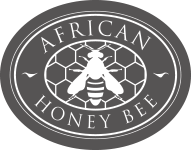The African Honey Bee Project, partly funded by Sappi, is doing an excellent job in encouraging rural entrepreneurship, alleviating poverty, curbing fires and providing additional financial resources for local timber farmers.
Where it all began:
What started off as a simple access agreement when Sappi Forests allowed African Honey Bee to place their hives on our plantations in Mpumalanga a few years back, has grown into a successful skills and enterprise development venture, turning community members and small-scale timber growers in Northern Zululand into bee-farmers and micro-entrepreneurs.
Click here to watch the video.
Impact:
The project benefits Sappi and local communities in numerous ways:
- It allows locals to make an additional income from honey
- It provides proper training in honey collection and bee-keeping that helps to reduce the number of fires started by honey hunters
- Trainees are taught how to catch wild swarms in catch boxes and how to use sustainable bee-keeping methods, like making their own protective gloves, veil, smoker and hive tools from old jeans, hats, nets, curtains and tins
- They receive their first 'flatpack' - the material used to make a hive. When they start catching bees and making honey, they are awarded with more flatpacks to make more hives
- As honey production is seasonal, participants also learn the basics of vegetable and poultry production, so that they can supplement their diets with protein (from eggs and meat) and from the vegetables they grow. They also generate an income throughout the year if they manage to produce a surplus.
Rewards:
Income from honey:
Since first starting the programme in 2016, more than 1734 families have registered with and been trained by African Honey Bee. 862 of these families are bee-keeping from one or more hives, others are still hunting honey, but in ways that are more sustainable and do not cause uncontrolled fires. In 2017, African Honey Bee purchased five tons of honey from 120 beekeepers; in 2018 fifteen tons from 250 beekeepers, and in 2019, ten tons from 500 beekeepers. The beekeeper families earn R50 per kg when they supply the honey. From the honey sold in 2019, they will also earn a share of the value chain profits which will be an additional R7 per kg. The honey, once harvested by the local communities is packaged and sold throughout South Africa in a Fair Trade agreement through www.peels.co.za as Sizana traceable honey.
Self-help groups:
In 2017, African Honey Bee started teaching the beekeeper families to form groups at venues like churches or community halls, within walking distance from where they live. So far 60 groups have saved money that they then leant to members to start beekeeping, chicken and vegetable income-generating activities. The loans were all paid back with interest, and the savings and interest were paid out after saving for a year. In conjuction with the savings, income-generating principles and businesses in a a box were taught to members.
School awareness:
In 2017 and 2019 school awareness programmes taught children how to work with bees using controlled fires (smokers) and protective clothing and also taught them how bee-keeping can lead to income generation. Many of the children encouraged their parents to join the programme.
Click here to download free children's books from African Honey Bee
Visit the African Honey Bee Website to learn more.


















